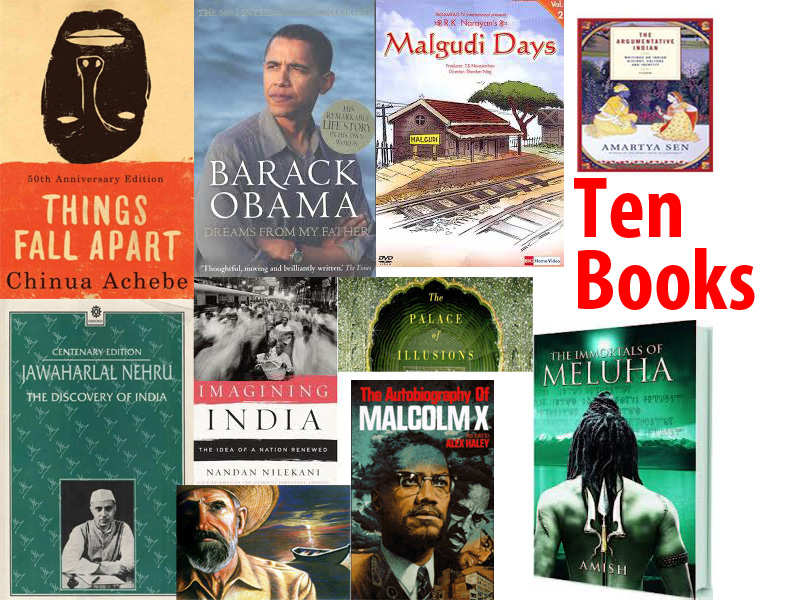Long before computers and the Internet started dominating our life, these handheld compact devices with wafer-thin pages transported people from one world to another in a jiffy. They were highly portable and could accompany you anywhere (yes, even to the washroom), and came with all kinds of pricing. Those who embraced them underwent a metamorphosis that changed them for the better. And the effect was for life. Yes, we are talking about books here.
Below are the top 10 books that every Indian should read. The list is an eclectic mix of world literature, visionary writing with Indian perspective and a historical yet contemporary chronicle of this country that is waiting to grow in leaps and bounds. But a list is a list after all, and it does not indicate or dictate the order of preference.
- Things Fall Apart by Chinua Achebe
- The Old Man and the Sea by Ernest Hemmingway
- The Autobiography of Malcolm X by Alex Haley
- Dreams from My Father: A Story of Race and Inheritance by Barack Obama
- The Immortals of Meluha by Amish Tripathi
- The Palace of Illusions by Chitra Banerjee Divakaruni
- Malgudi Days by R. K. Narayan
- The Discovery of India by Pandit Jawaharlal Nehru
- Imagining India: The Idea of a Renewed Nation by Nandan Nilekani
- The Argumentative Indian: Writings on Indian History, Culture and Identity by Amartya Sen



0 comments:
Post a Comment